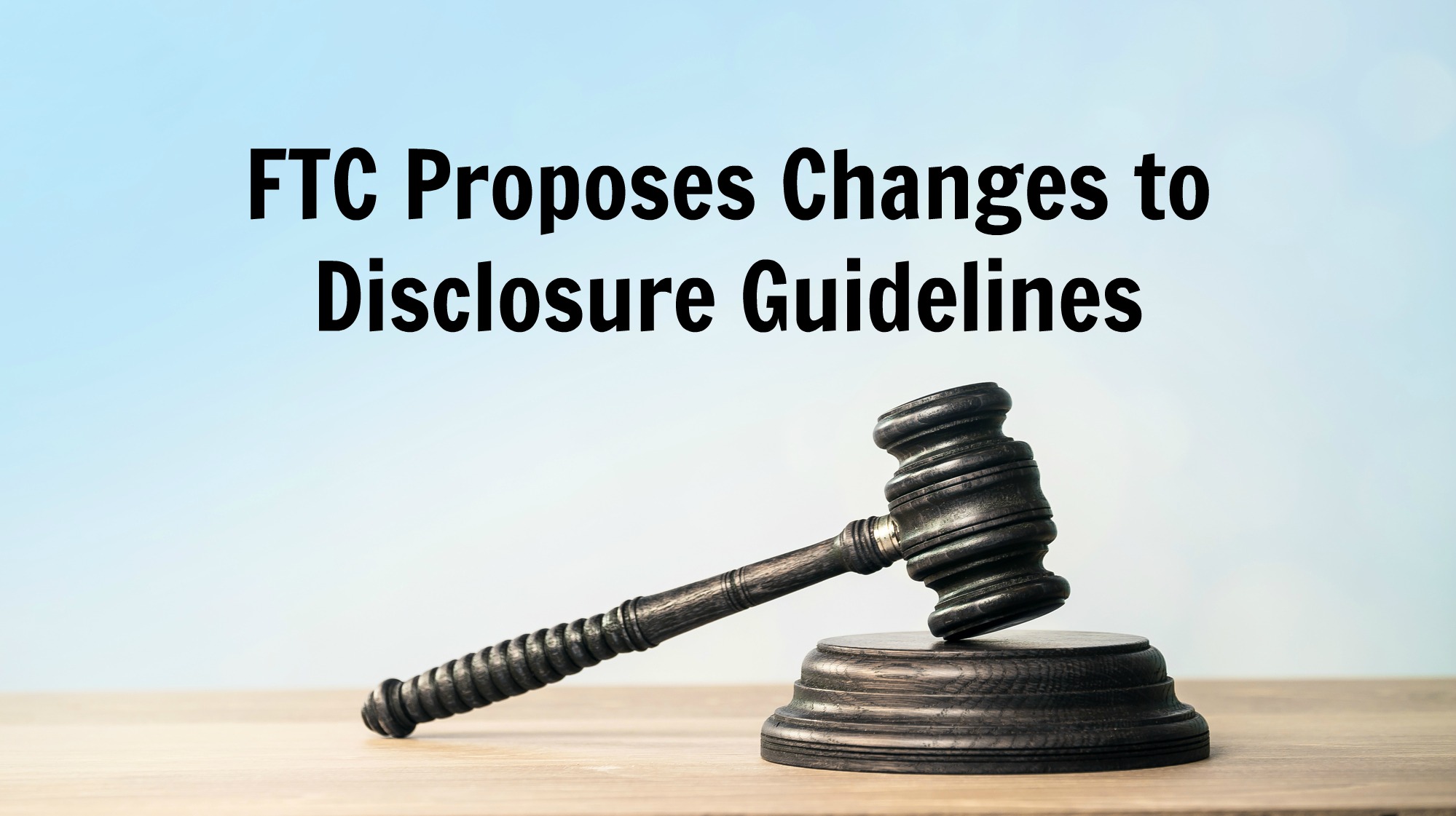
(Sign up for my newsletter to get updates! Or follow me on LinkedIn or Twitter!)
In February 2020, the FTC solicited feedback on the “Guides Concerning the Use of Endorsement and Testimonials in Advertising.” On behalf of the Performance Marketing Association, I submitted comments. Today the FTC voted to release proposed changes to the Guides and open that proposal up for public comment. You can read the full document here.
The document is 77 pages long, so I am going to attempt to break down what I consider to be the most important parts for affiliate marketers. Comments can be filed online here.
Key Takeaways
If you want a TRUE tl;dr, here it is:
- “Affiliate Marketing” as an industry is being specifically added to the Code of Federal Regulations endorsement guidelines.
- Influencer marketing is heavily on the FTC’s radar.
- The Guides are codifying liability for advertisers, affiliates, and even agencies.
- Affiliates and influencers cannot rely on the disclosure tools built into social media platforms.
- “Clear and conspicuous” means that the disclosure is “unavoidable” in any way by the consumer.
- Affiliate managers are being told more specifically that they must educate affiliates, monitor affiliates, and take action when there is a violation.
And now for more of the details!
Definition Changes
The FTC proposes to add “marketing” and “promotional” messages as endorsements. This specifically includes when a brand is tagged in a social media post.
The FTC proposes defining “clear and conspicuous” as “difficult to miss (i.e. easily noticeable) and easily understandable by ordinary consumers.” The focus will be that the disclosure is “unavoidable.” When the endorsement is visual the disclosure must be visual. When the endorsement is audible, the endorsement must be audible. When the claim is both, the disclosure must be both (think in terms of videos).
Although this is similar to the informal guidance the FTC has given, it codifies into the actual Guides.
Another addition (that will be particularly important as they meet to discuss children and advertising later this year) is that if an endorsement targets a specific audience, the disclosure will be evaluated from the perspective of that group. Consider specifically ads that target older adults.
Affiliate Marketing Specifically
Although it doesn’t come until halfway through the document, I’m bringing this up early because it obviously impacts every one of us. “Multiple commenters” asked for “affiliate relationships” and “affiliate links” to be addressed (American Financial Services Association, BBB, Shirley Boyd, Council for Responsible Nutrition, Consumer Reports, Jim Dudukovich, Maastricht University, and News Media Alliance). A new example (Example 11) will specifically address affiliate marketing. This isn’t new information, but it does make it clear that affiliate marketing is being targeted as a part of the Guides and almost 10% of the commenters included something about affiliate marketing needing to be included.
“Example 11: A coffee lover creates a blog that reviews coffee makers. The blogger writes the content independently of the marketers of the coffee makers, but includes affiliate links to websites on which consumers can buy these products from their marketers. Whenever a consumer clicks on such a link and buys the product, the blogger receives a small portion of the sale. Because knowledge of this compensation could affect the weight or credibility site visitors give to the blogger’s reviews, the reviews should clearly and conspicuously disclose the compensation.”
Advertiser Liability for Endorser Actions
Advertisers can be liable for the failure of the affiliates to disclose. Advertisers should take 3 important actions regarding endorsements made on their behalf. 1) Provide guidance regarding appropriate disclosure, 2) monitor for compliance, and 3) take action to remedy non-compliance and prevent future non-compliance.
Affiliate/Influencer Liability
A new section will be created for endorser liability. This line is interesting: “The level of due diligence required by the endorsers will depend on their level of expertise and knowledge, among other factors.” Section 255.1(e) would specifically state that an endorser may be liable for “failing to disclose unexpected material connections between themselves and an advertiser.”
Intermediary Liability
Regarding specific intermediaries such as agencies and PR firms, a new section will be added. The key line in this is that intermediaries may be held liable for “hiring and directing the endorsers who fail to make necessary disclosures.” I’m interpreting this to mean that an affiliate manager COULD be held liable depending on what they tell the affiliate regarding endorsement. The footnote cites a case where the intermediary “recruited, hired, and instructed influencers…but did not require the influencers to disclose compensation.” Another change would be to make clear that these provision apply to “paid consultants.”
Platform-based Disclosure Tools
The PMA comments included a desire for the social media platforms to build in disclosure tools that would satisfy the Guides. Currently many of the tools deployed by the platforms are not in compliance but affiliates and influencers rely on the tools. Although they did not codify it, the FTC stated in this proposal and the meeting that both the endorser and the platform could be left open to liability if the tools are not sufficient. The FTC stated in its commentary that some of the existing built-in tools are “too poorly contrasting, fleeting, or small, or may be placed in locations where they do not catch the user’s attention.” This reiterates what I have been saying about affiliates needing to understand the Guidelines and not rely on the platforms.
Marketing to Children
A lot was said about marketing to children and how to appropriately disclose material connections and endorsements. If you are a merchant or affiliate who specifically markets to children, this is something that will be addressed throughout this year and again specifically in October.
I’ll continue to update my post Affiliates Take Note: New FTC Disclosure Guidelines to be the central location for the latest disclosure information. Overall, I don’t think this is really significant except that the FTC wants to be sure that they can make pretty much anyone in the chain liable. This allows them to go after anyone involved. Given that this is the CFR and not their supplemental documents that give extra examples and guidance, I’m not surprised they didn’t go further into the weeds. But I would have liked to have seen them give us more specific language on exact, simple disclosure options as well as how advertisers/agencies should be monitoring endorsement. They also specifically mentioned affiliate marketing but did not go so far as to say that “affiliate” would be a sufficient disclosure. There’s still work to be done!



